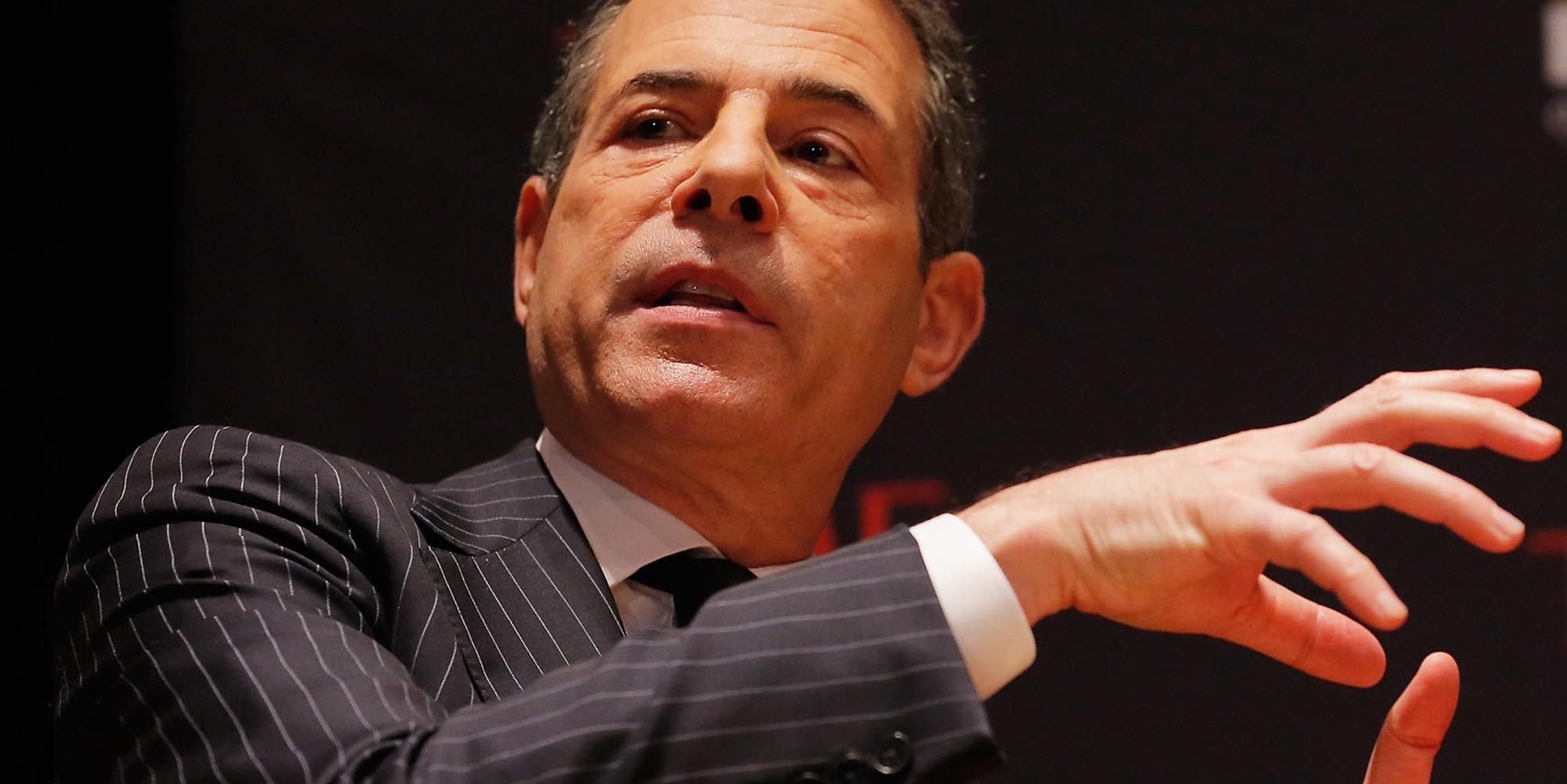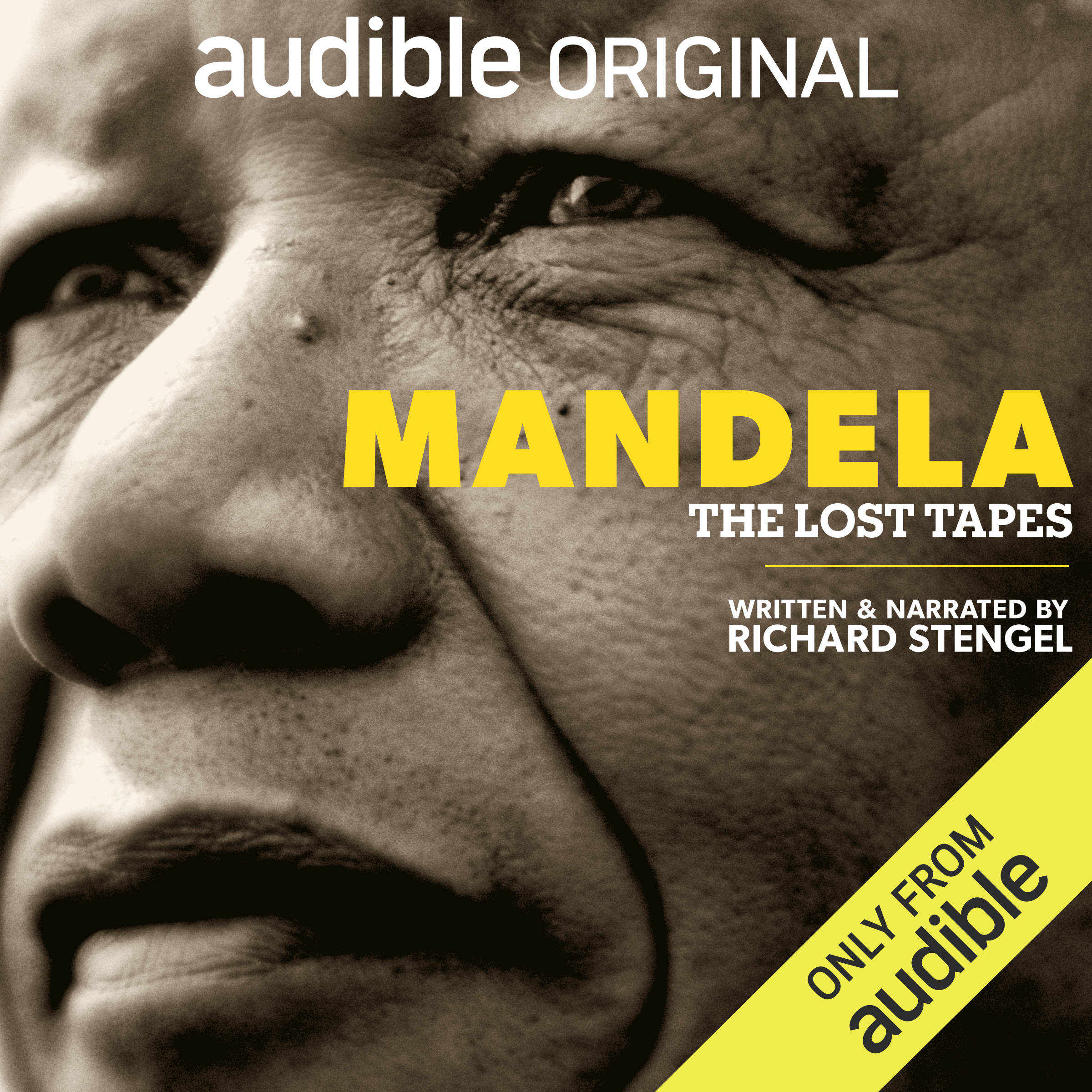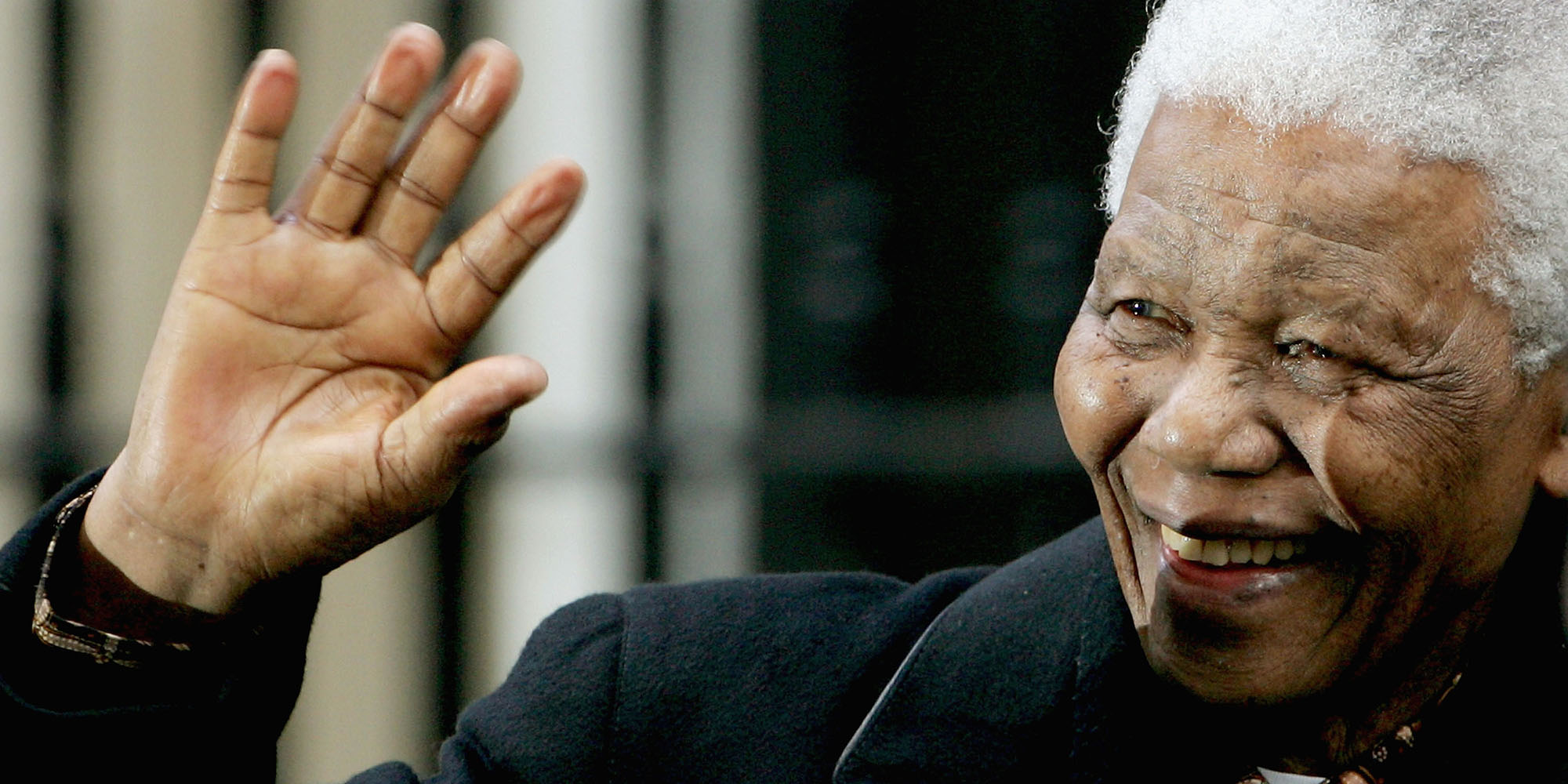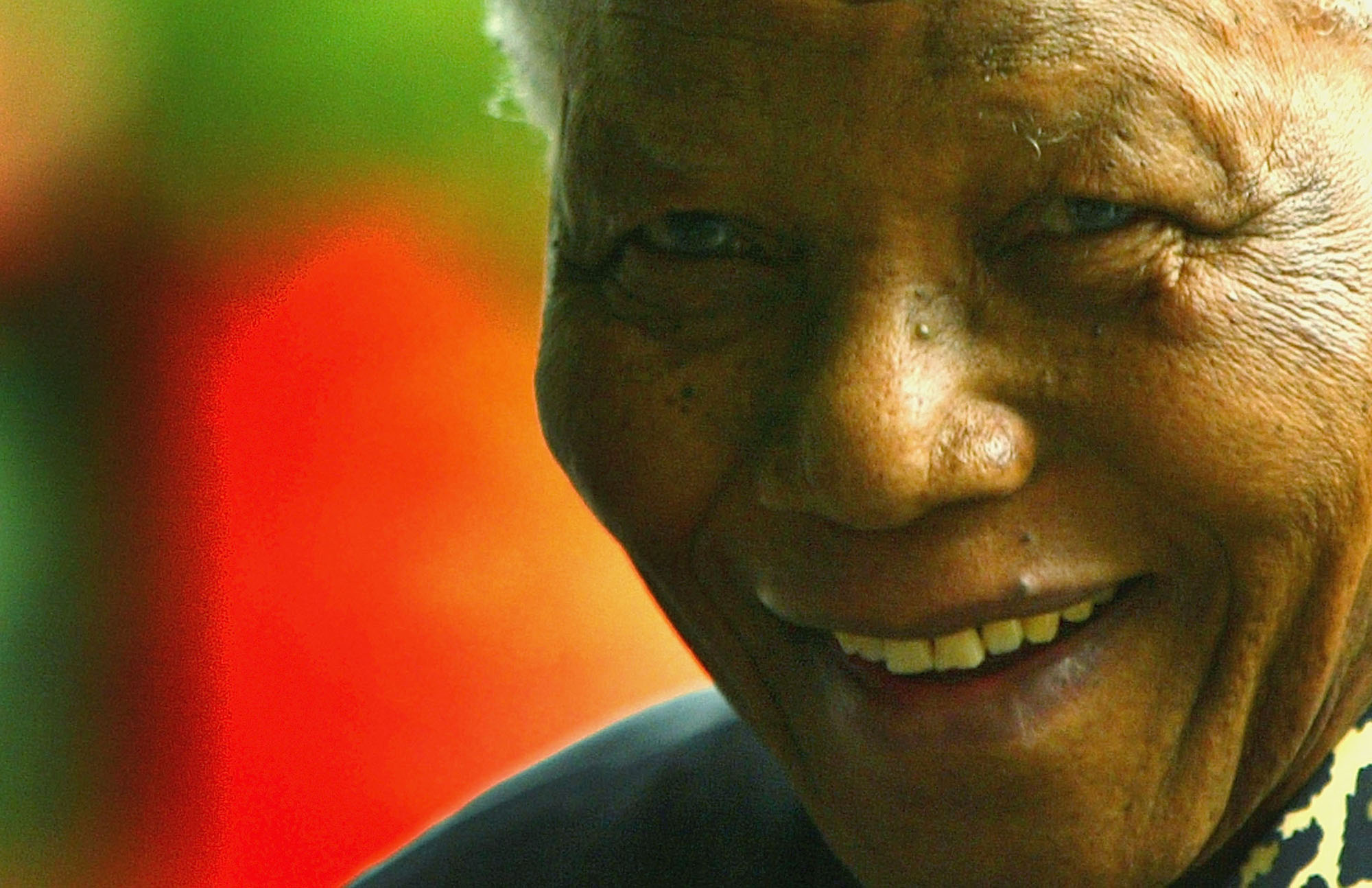Long Walk to Freedom is widely considered one of the greatest autobiographies of all time, but credit for that has too seldom gone where it arguably belongs: to Nelson Mandela’s ghostwriter, Richard Stengel.
Publishers Little, Brown and Company had signed Mandela up for a book almost as soon as he left prison, but there was never any suggestion that Mandela himself would have the time to write his own life story.
“He was adapting to the modern world, he was worrying about whether there would be a civil war in South Africa; he had 10,000 more important things to do,” Stengel told Daily Maverick this week.
There’s another aspect, too: “If Mandela had done it, it would have been an 800-page history of the ANC,” Stengel quips, in reference to the statesman’s passionate love for the movement he led.
 Richard Stengel, author and former editor of TIME. (Photo: Jemal Countess / Getty Images for TIME)
Richard Stengel, author and former editor of TIME. (Photo: Jemal Countess / Getty Images for TIME)
Stengel was a 37-year-old US journalist in 1993 when he sat down with Mandela, then 72, to conduct the series of interviews that would become Mandela’s international bestseller.
The then little-known Stengel was not Mandela’s choice.
“He had decided he wanted [renowned South African author] Es’kia Mphahlele, so Zeke [Mphahlele] was hired to write on it,” Stengel says.
But what Mphahlele — who died in 2008 — ended up producing was more of a kind of “novelisation with Mandela quotes”, in Stengel’s words, and the publishers weren’t happy.
At some point, Stengel believes, Nobel literature laureate Nadine Gordimer was working on a plan for the book with Mandela. By December 1992, however, a ghostwriter had still not been formally signed up for the project and time was ticking.
William Phillips, the editor-in-chief of Little, Brown and Company, was given Stengel’s non-fiction work on South Africa to read and decided that Stengel might just be the person for the job. After some strained but cordial initial meetings with Mandela, who took a dim view of Stengel’s relatively youthful age, it was agreed that work could proceed.
Mandela: The Lost Tapes
Now, for the first time, the public has been granted access to the collaboration that ensued between Mandela and Stengel — via the 10-episode Audible podcast Mandela: The Lost Tapes.

The reference to the tapes as “lost” is poetic licence, Stengel freely admitted to Daily Maverick: the recordings have in fact always belonged to the Nelson Mandela Foundation, per the ghostwriting contract, and were formally returned in 2010.
Over the course of the 10 episodes, Stengel covers the most significant aspects and chronology of Mandela’s life. The facts will be familiar to most South African listeners; what makes the series wonderful listening regardless is the manner in which it brings Mandela to life once more, and the value of Stengel’s observations.
“It’s hard to explain how little Mandela knew about modern life,” Stengel recollects in the first episode.
Having been in prison since 1963, so many cultural and political currents had passed Mandela by: gay rights, women’s rights, the Beatles, computers…
The Mandela we hear in the recordings is a man with an effectively “Victorian” sensibility, as Stengel suggested to Daily Maverick. He is unflappable, courteous and exceedingly prim and proper: in the second episode, he can be heard revising an anecdote about apartheid toilets for Stengel because he does not wish the word “urinating” to feature in his book.
Visit Daily Maverick's home page for more news, analysis and investigations
One might think that Mandela would be a ghostwriter’s dream, on account of his extraordinary personal story. But what emerges most clearly from the tapes is just how hard Stengel had to work for his material.
Because the ANC had yet to take power, for instance, Mandela refused to talk about certain tactics used in the Struggle as it might still be necessary to deploy them. (He can be heard raising this in the recordings with regard to the arrangements around Liliesleaf Farm.)
Mandela also “wanted a book that wouldn’t depart from the ANC line”, Stengel explains in the podcast. This was particularly the case because South Africa’s first democratic elections still lay ahead, and the ANC president felt he could not risk committing anything to print which might alienate his electorate.
He refused to discuss his divorce from his first wife, Evelyn, for instance, on the grounds that conservative older Africans might disapprove.
Mandela was, in general, hugely reluctant to talk about anything related to his private life, presenting something of a nightmare for any aspirant biographer.
Says Stengel: “Mandela believed that black South Africans wouldn’t want to hear him talking about matters of the heart like an American.”
To give an example, this is the sum total that Stengel was able to extract from Mandela on the topic of Evelyn’s personality: “She was a well-behaved, quiet lady.”
 (Photo: Ian Waldie / Getty Images)
(Photo: Ian Waldie / Getty Images)
‘Mandela was a democratic revolutionary’
Stengel told Daily Maverick that he had not listened to the tapes since he conducted the interviews in the early 1990s, so to revisit them now was a journey back in time for him too.
At 67, Stengel is now much closer to Madiba’s age on the tapes than he is to his younger self when the recordings were made.
“I hear things in his voice now I think I didn’t hear then. Wistfulness, loneliness,” he muses.
“I feel for him more. In his personal life, it was an incredibly difficult time. I used to go to see him at his Houghton house and there was nobody around.”
The podcast series concludes on a note of poignant intimacy between Mandela and Stengel, but the writer is under no illusions that he ever truly overcame the distance that Mandela kept between himself and even some of his closest comrades.
“Many people love me from afar, but very few from up close,” Mandela was fond of saying; the reality, in Stengel’s view, is that he rarely admitted others to his most private inner sanctum.
Watch: Richard Stengel's address to The Gathering, 24 November 2022.
https://youtube.com/watch?v=4clV3qitXPM&si=EnSIkaIECMiOmarE
Mandela’s legacy in South Africa has become more complicated in recent years, as the concessions he made during the transition to democracy are held up as responsible in part for the maintenance of grotesque social and economic inequality.
Stengel finds some of this discourse frustrating, in its apparent lack of consideration of historical context.
“Did he give up too much to get to that [democratic] dispensation? Maybe, but he was trying to avoid a holocaust!” he says with animation.
If South African listeners take away anything from the podcast, Stengel says, he would like it to be the awareness that Mandela was a “democratic revolutionary”.
The ANC leader never needed fancy political consultants to remind him to stay “on message”, says Stengel, because he was always on message.
“He wasn’t a Santa Claus figure. He was the founder of Umkhonto weSizwe. He was hard-headed and pragmatic. He wasn’t an ideologue. He was an African nationalist. Let people still criticise, but never doubt the integrity of what he stood for.” DM




 Former President of South Africa Nelson Mandela. (Photo: Ian Waldie / Getty Images)
Former President of South Africa Nelson Mandela. (Photo: Ian Waldie / Getty Images) 